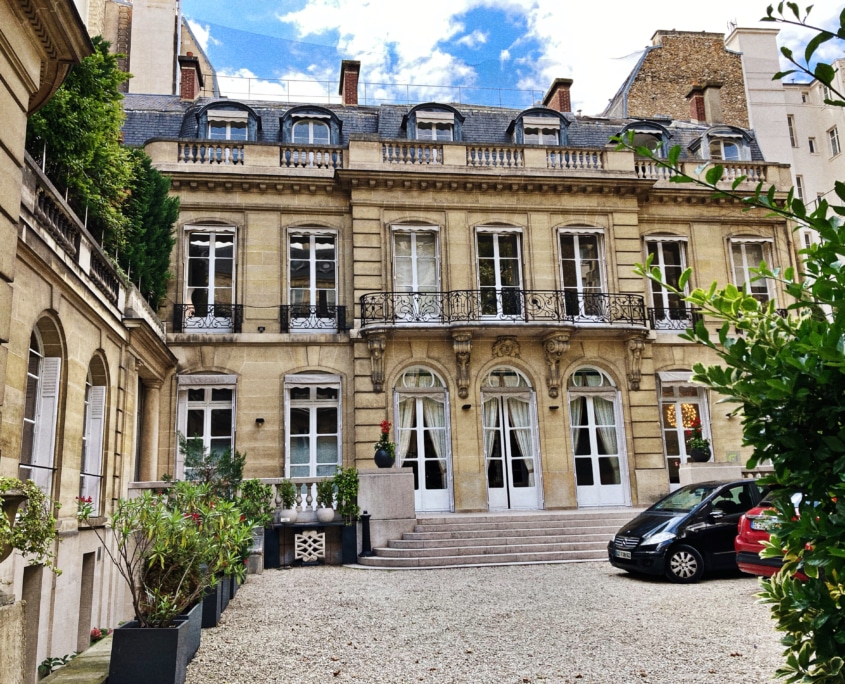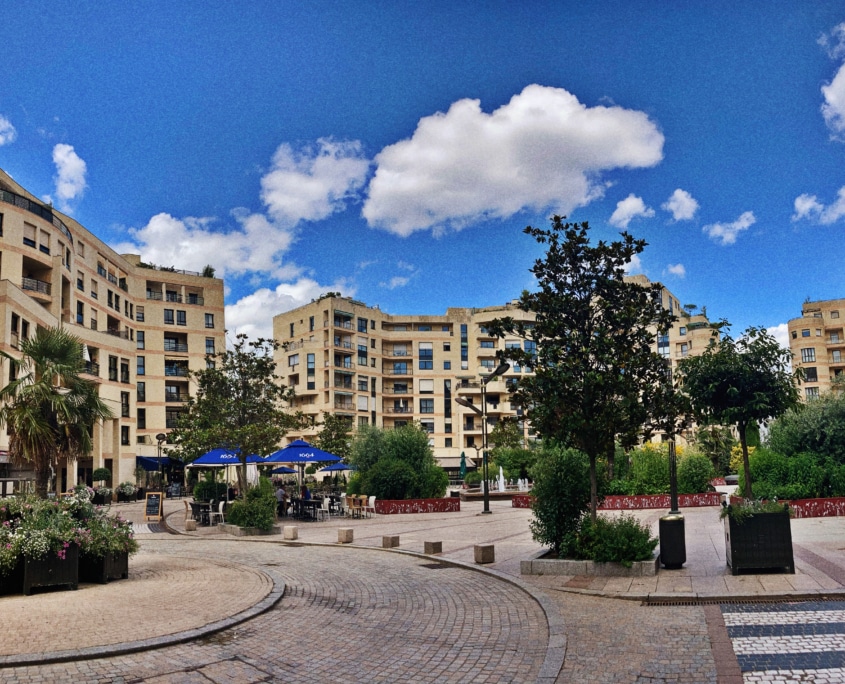
Rue de la Faisanderie
British investor in Paris property? Here is everything you need to know about your French tax requirements
A tourism hub with unrivalled beauty, fascinating culture and gastronomic offerings -is there anywhere in the world with more attractive property investment options than Paris?
No wonder so many British people buy French real estate every year.
Whether you own a Paris home or you are on the lookout for the right opportunity, it’s important to have a strong grasp of your tax requirements as a non-resident French property owner.
If you are British buying Parisian property as an investment, you may have questions about the taxes you will have to pay and the tax returns you will be required to file.
After all, the tax system in France can be difficult to understand and there is a lot to keep track of.
In this guide, we will take a closer look at everything you need to know about the French tax as a British investor in Parisian property.
Buying property in Paris as a non-EU resident
Non-EU residents and EU citizens go through the same procedure when purchasing a home in France. The only difference will be the time you can spend in France, and it will depend on your residency status.
In France, you must always use the services of a “Notaire”* when selling and buying real estate.
*“Notaires” are not just qualified attorneys, like English Solicitors, but also public officers in France.
What taxes should British investors pay initially after buying real estate in Paris?
Registration and notary fees
This depends on the type of property you decide to purchase in Paris.
If you want to invest in a French property that is less than 5 years old, you will have to pay approximately 2% in registration and transfer fees, as well as VAT (20% on the purchase price). Registration costs are roughly 0.7% of the sales price.
If you wish to purchase an old property, the taxation and transfer of ownership expenses vary from 7% to 10% of the selling price. The registration fees range between 5.08% and 5.09%.
French notary fees start at 5% for the first €3,000 and steadily decrease to 0.35% if the purchase reaches €120,000.
All of these fees are subject to change.
What are the changes after Brexit for the UK landlords of French properties?
British residents can expect rising costs and administration, as well as higher social charges and limitations on the time spent in France.
If you have any profits from your French investment, you will be taxed under the terms of the double taxation agreement between the UK and France.
From January 2021, landlords must pay these social charges, in addition to income tax:
- prélèvement social (PSOL): 7.5%
- contribution sociale généralisée (CSG): 9.2%
- contribution au remboursement de la dette sociale (CRDS):0.5%
For profits before 2021, only the PSOL is payable by UK residents.
The gain from French properties is taxed at 20% up to €25,710 and at 30% for the income bigger than that (2020).
If there is any commercial activity, furnished lettings must be registered with a unique business number, known as SIRET.
I have a Paris rental property. What are the tax obligations for British non-resident landlords in France?
Non-residents are taxed on their profit earned from French sources. Married couples will be charged either individually or jointly.
Your Paris property investment could be liable to income and local taxes, wealth taxes and capital gains. This will be discussed further below.
Income tax in France for non-residents
If you are earning income from a French source, you must declare it and file a tax return.
You will be taxed at a flat rate of 20% or 30%. If your earnings are up to €27,519, the rate is 20%. For anything above this, the French tax rate is 30%. (2021)
Non-EU residents will also owe 17.2% social charges. The combined rate of income tax and social charges will be either 37.2% or 47.2%, depending on the threshold mentioned above.
Local taxes
If you are buying Paris property as an investment, you will be subject to two local taxes- the housing tax and the French land tax.

Place Georges Pompidou
Taxe d’Habitation (Housing tax in France)
The owner of the property or the tenant who is renting it on a long-term basis must pay this local tax.
If the real estate is rented out on a short-term basis, the owner is responsible for Taxe d’Habitation.
If it is rented unfurnished, the tenant must pay it. If the home is unoccupied, this tax is not due. Тhen, instead of Taxe d’Habitation, the owner should pay Taxe sur les logements vacants (Tax on vacant dwellings).
This type of French tax is determined by some characteristics of the property like location and varies in each municipality.
The amount of tax will vary based on the decisions of each municipality, as well as the size and state of the real estate.
You may be entitled to a tax relief of between 10-15% for each of them.
If you decide to make any major renovations to your Paris property, you must notify the tax authorities in France and they will make a reevaluation of it. (Form IL 6704)
At the end of October or the beginning of November, you will receive a notice from the tax authorities showing the amount of tax due and the deadline for its payment. It will be also uploaded to your personal account on the website of the French tax office.
Taxe Fonciere or the French land tax
Taxe Fonciere is the French land tax. It is a local tax and the owner is responsible for it, no matter if the property is rented out or occupied or there are no buildings at all.
The calculation of the amount that’s owed is determined by the local authorities.
This amount is always changing, as tens of thousands of properties are revalued each year, often resulting in significant tax increases for the owner.
At the end of August or the beginning of September, you must receive a notice from the tax authorities showing the amount of tax due and the deadline for its payment.
Cotisation Foncière des Entreprises – (CFE) tax France
CFE is based on the property’s rental value and is an annual tax, owed by the owners of furnished properties who declare their income using the real mode of taxation. If the real estate is unfurnished or leaseback, no CFE is due.
This tax varies between €100 and €1.500. Most owners pay too much of it and can apply for a French tax refund for the overpaid CFE.
Homeowners should not pay the CFE tax in the first year of ownership.
Tax on real estate wealth – Wealth tax in France (IFI)
In France, IFI (the Impôt sur la Fortune Immobilière) is an annual wealth tax on real estate. The tax-free exemption is €800,000, after that, rates begin at 0.5% and gradually climb to 1.5%.
The rates of taxation and the tax bands, applicable for 2021 are:
| Fraction taxable | Rate of tax |
| €0 – €800,000 | 0% |
| €800.000 – €1.300.000 | 0.50% |
| €1.300.000 – €2.570.000 | 0.70% |
| €2,570,000 – €5.000.000 | 1% |
| €5.000.000 – €10.000.000 | 1.25% |
| €10.000.000+ | 1.50% |
The calculation to determine net taxable wealth is difficult, so it’s a good idea to get professional French tax advice.
Capital gains tax in Paris
This property tax is due if you sell your French real estate.
If you have owned the property for less than 30 years when you decide to sell, the Capital Gains Tax due will be 19.2%, plus 17.2% social charges on the taxable profit which is 36.2%.
If you have owned the property for more than 30 years, Capital Gains Tax and social charges are excluded from the profit of the sale.
Non-residents living outside the European Economic Area (EEA) no longer pay a higher rate of capital gains tax.
What is the leaseback scheme in France and are there any property tax advantages?
The biggest distinction between rent and leaseback is their duration. The leaseback schemes usually last for 9, 11 or 12 years.
Those who commit to the leaseback are eligible for a refund of the 20% VAT paid on a property purchased in France.
If the real estate is sold before 20 years of ownership, the VAT must be repaid to the French tax authority proportionally for the years left.
Taxe foncière should be paid by all property owners.
The owners of leaseback assets do not pay Taxe d’Habitation and Cotisation Foncières des Entreprises (CFE) – these municipal taxes are paid by the management firm.

Who can help me file my French property tax return?
PTI (Property Tax International) have a team of experienced tax experts and can help you with all your tax obligations in France.
They will prepare your tax return, deal with all the documentation, communicate with the French authorities on your behalf and follow all the deadlines.
This can save you a lot of time and stress!
Their French tax advisors will also apply every relief and tax treaty that you are entitled to and help you avoid paying more than you have to. They will also apply for your French tax refund.
This will help you have higher rental profits from your Paris real estate.
Why choose PTI:
- They filed over 322,000 tax returns internationally last year (not only in France)
- Their French tax experts will answer all your questions because they have multilingual support
- They will help you file your French property tax return online and avoid paying too much tax
- Their tax advisors will follow all the changes in the French legislation and save you time and stress
File your French Property Tax Return easily here
Property Tax International (PTI)
specialises in international property tax returns and ancillary services for overseas property investors.
Check out for more country-specific Property Tax Information or review our tax services for residents and non residents.
Alternatively please register for a no-obligation call or email info@ptireturns.com.


